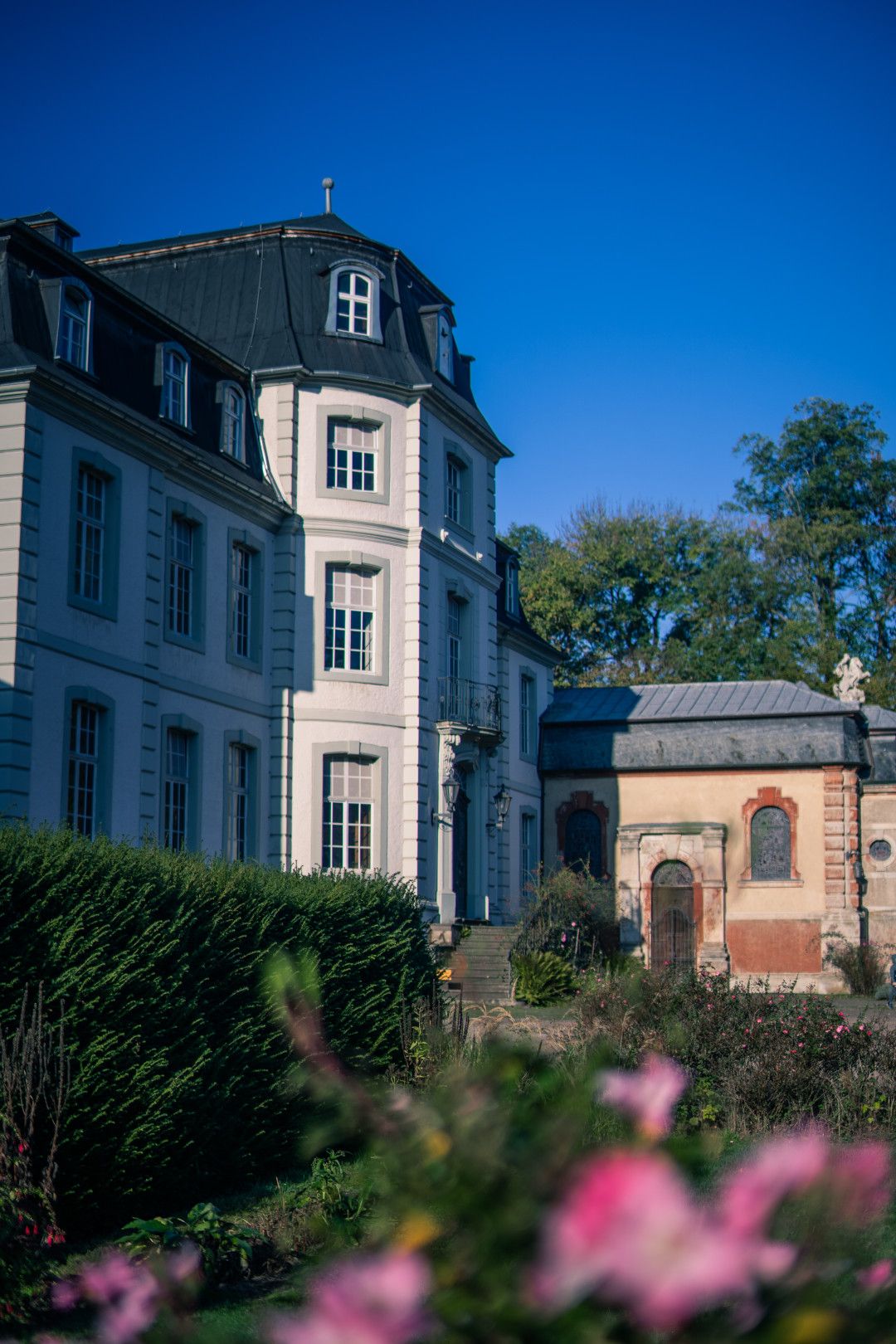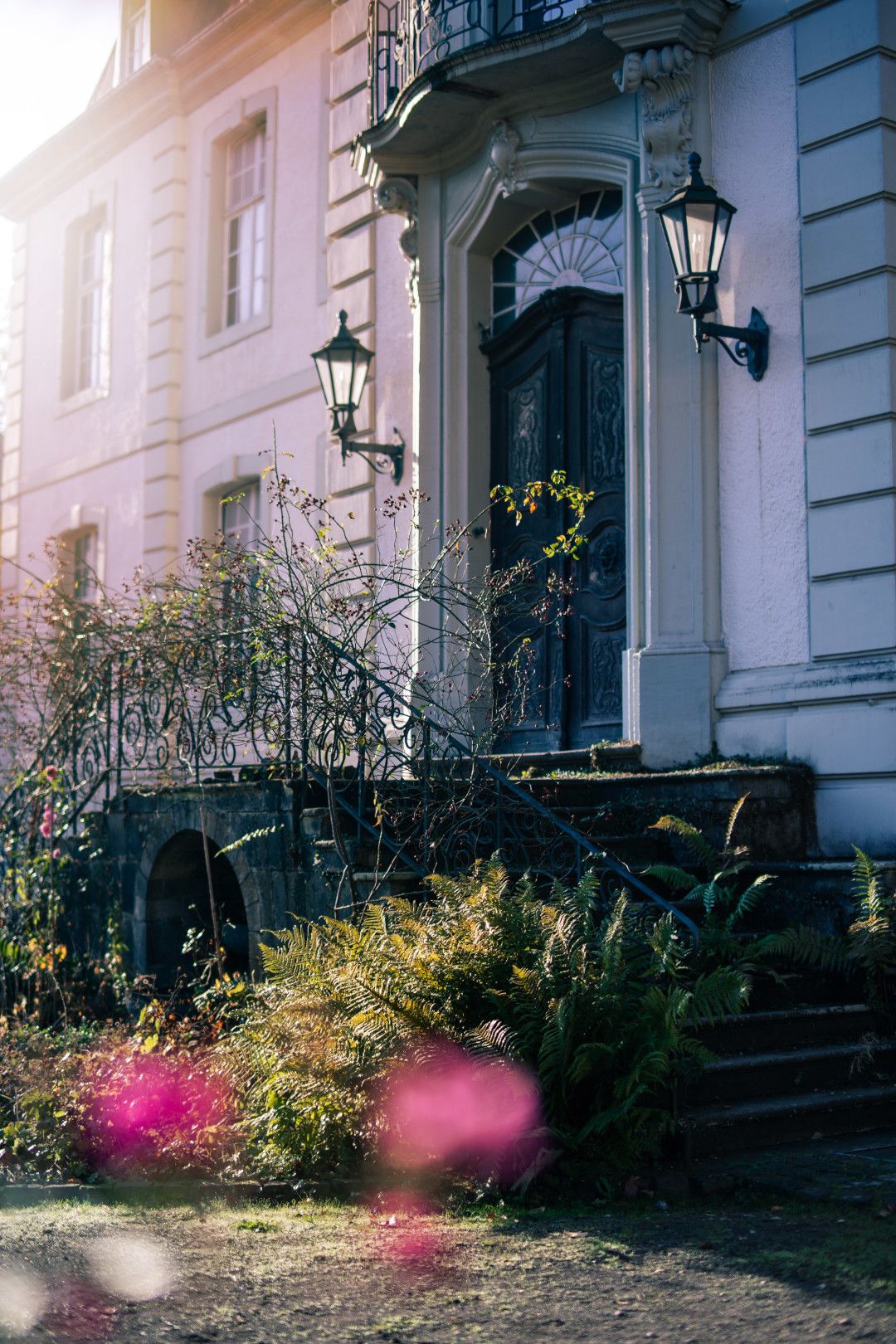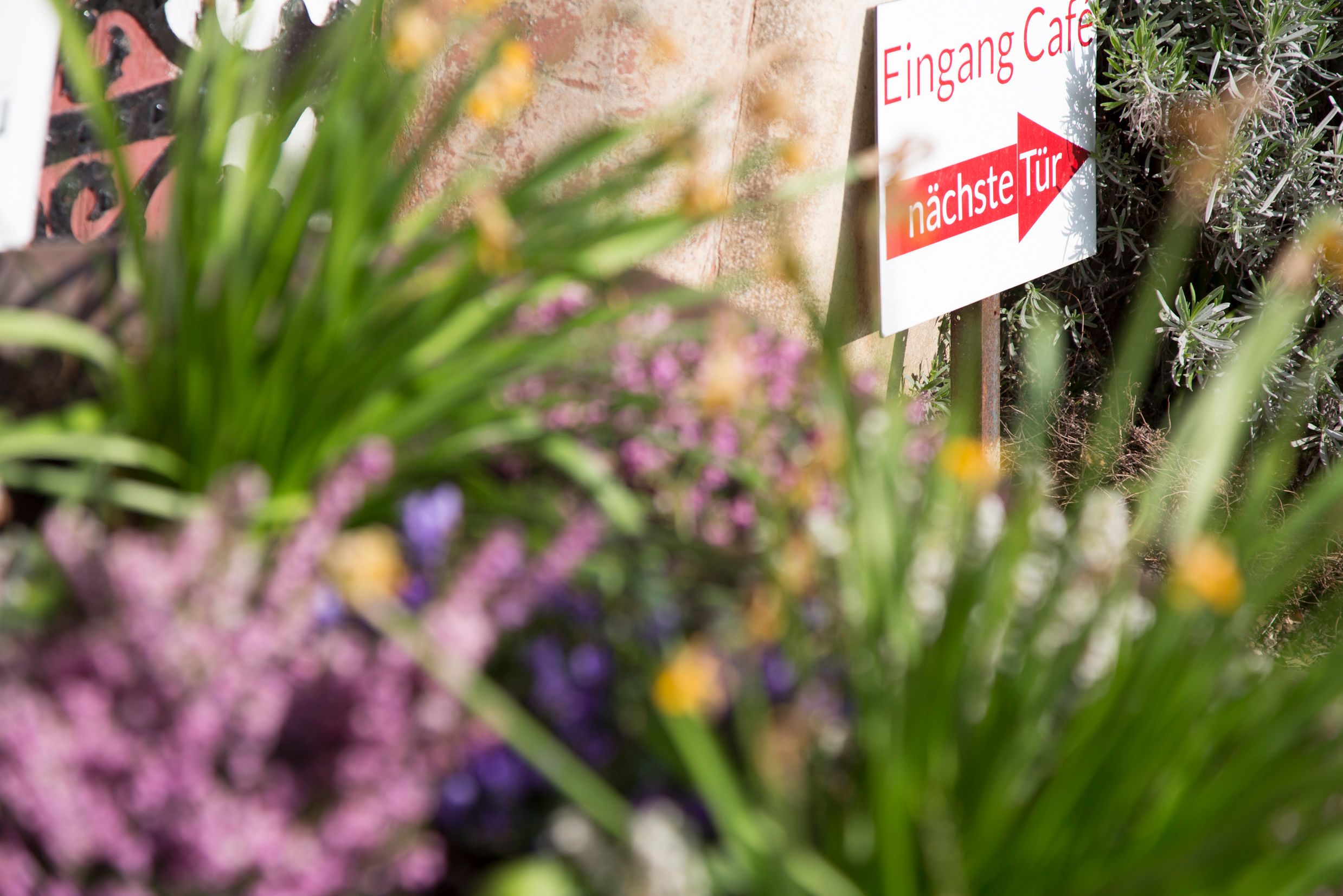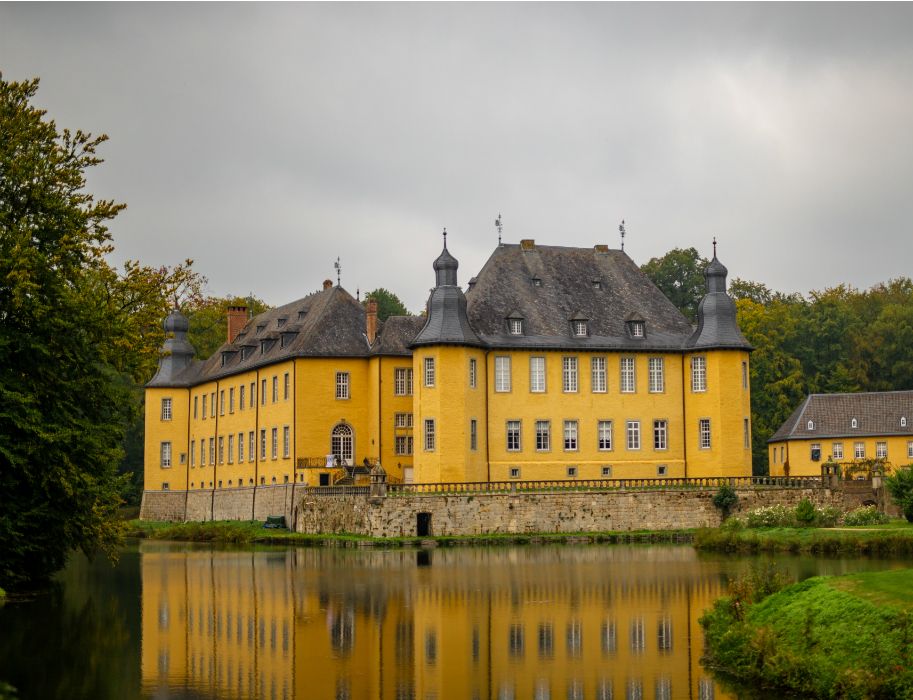What's that scent and what's blooming there? To mark the start of the gardening season, we have collected special kitchen and herb gardens that are worth a visit in their own right - but are also located in beautiful surroundings. Follow us to stately kitchen gardens and monastic herb gardens that still thrive in the shade of historic walls. But don't forget to visit a spa park and medicinal gardens where particularly healthy plants grow, bloom and smell.
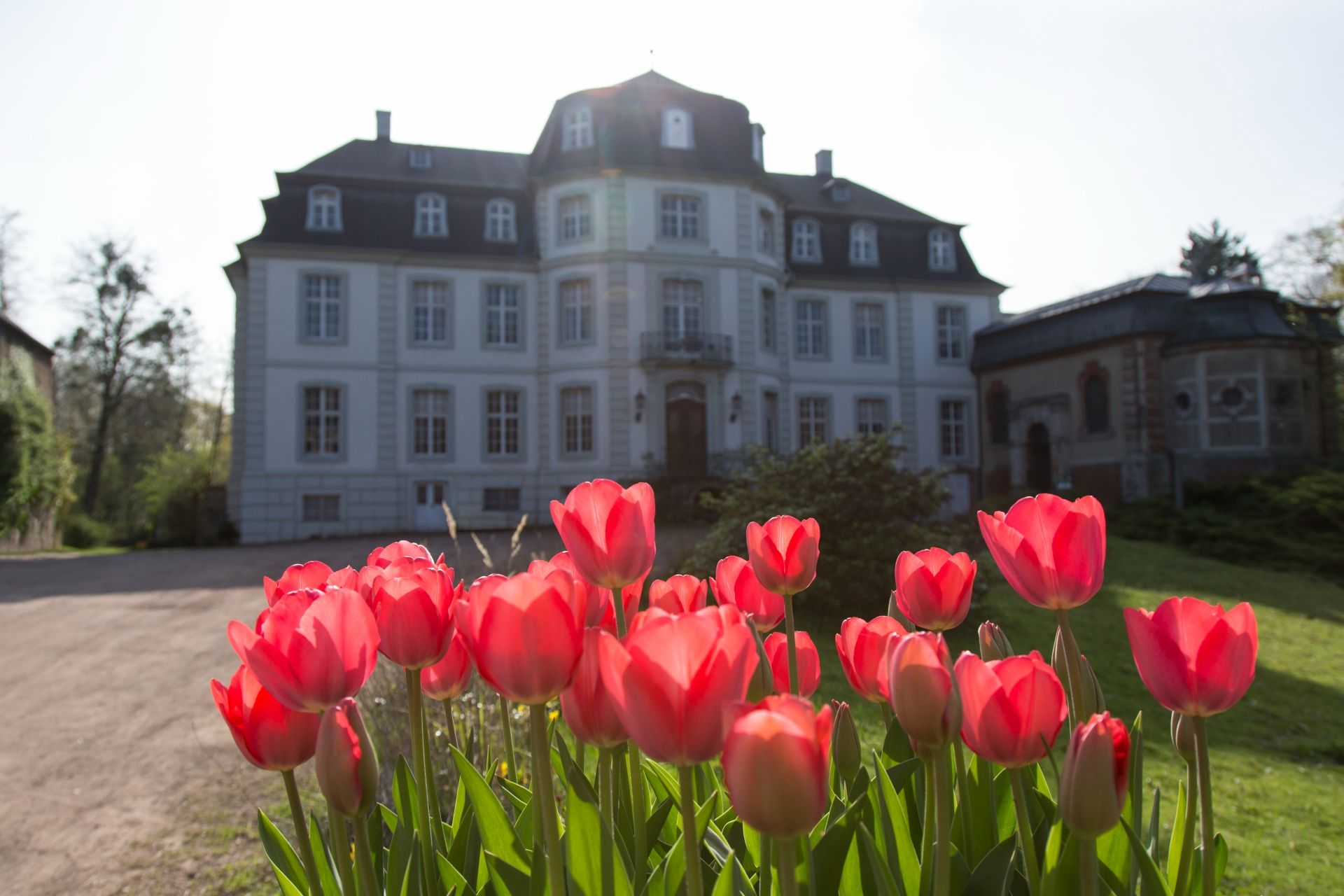

Kitchen gardens in castle parksStately eye-catchers
Benrath Palace, Düsseldorf
It is a total work of art across all the walls: each garden area in the grounds of Benrath Palace is assigned a room inside. For example, the English Garden with its rare trees refers to the private room of the Elector. A kitchen garden with espaliered fruit, vegetables, herbs and flowers once supplied the palace kitchen with the appropriate ingredients; today the garden fruits are sold fresh every day in summer. The castle café and Museum of Garden Art are further places to visit.
Schloss Dyck, Jüchen
As a centre for garden art and landscape culture, Schloss Dyck in Jüchen in the Lower Rhine region is nominally already a destination for garden fans. The centrepiece is the extensive English landscape garden surrounding the magnificent moated castle. Various show gardens offer inspiration for your own garden design. In the kitchen garden around the English greenhouse and in the espaliered fruit garden, herbs are fragrant and fruit and vegetable varieties that are used in the local catering trade thrive. There are also model gardens in different styles.
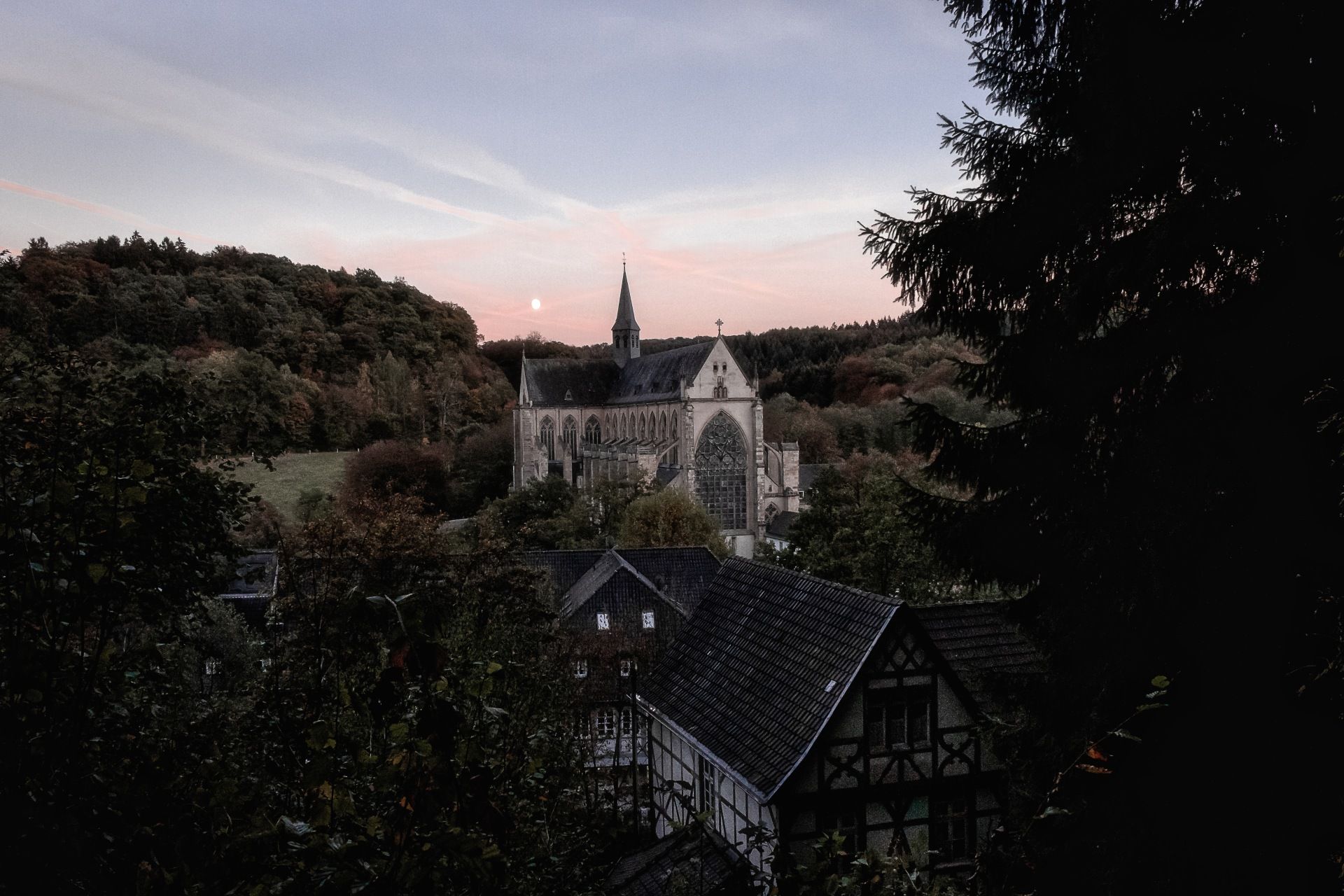
Medieval plant splendourChurch herb gardens
Kamp Abbey, Kamp-Lintfort
Contemplative tranquillity has prevailed in and around Kamp Abbey on the Lower Rhine since the first abbey church was built in 1150. Over the centuries, various gardens have been added to the growing complex, both for ornamental purposes and for use. While the baroque terraced garden is a feast for the eyes, the herb garden next to the abbey church appeals to all the senses.
https://kloster-kamp.eu
Saarn Abbey, Mülheim/Ruhr
The inner courtyard of Saarn Abbey brings medieval herb diversity back to life. Over 100 local herb species that were already known in the Middle Ages are cultivated and preserved, including lesser-known ones such as horehound, agrimony and medicinal cistus, as well as elderberry, the "poor man's pharmacy". Unlike the monastery museum, the monastery garden is always open and can be visited free of charge.
www.kloster-saarn.com
Capuchin monastery, Münster
The monastery garden of the Capuchin monastery in Münster was long used to supply the friars on site. And even though Capuchin friars and Franciscan nuns still live in the monastery today, it has recently been transformed into a refuge for old fruit and vegetable varieties as well as a place of retreat and experience for people.
www.kapuzinerklostergarten.de
Herb garden at Altenberg Cathedral, Odenthal
In the shadow of Altenberg Cathedral lies a traditional garden jewel: in the herb garden of the Küchenhof, once a monastery farm and now an inn, various herbs and medicinal plants thrive that monks cultivated and used hundreds of years ago.
https://kuechenhof.com
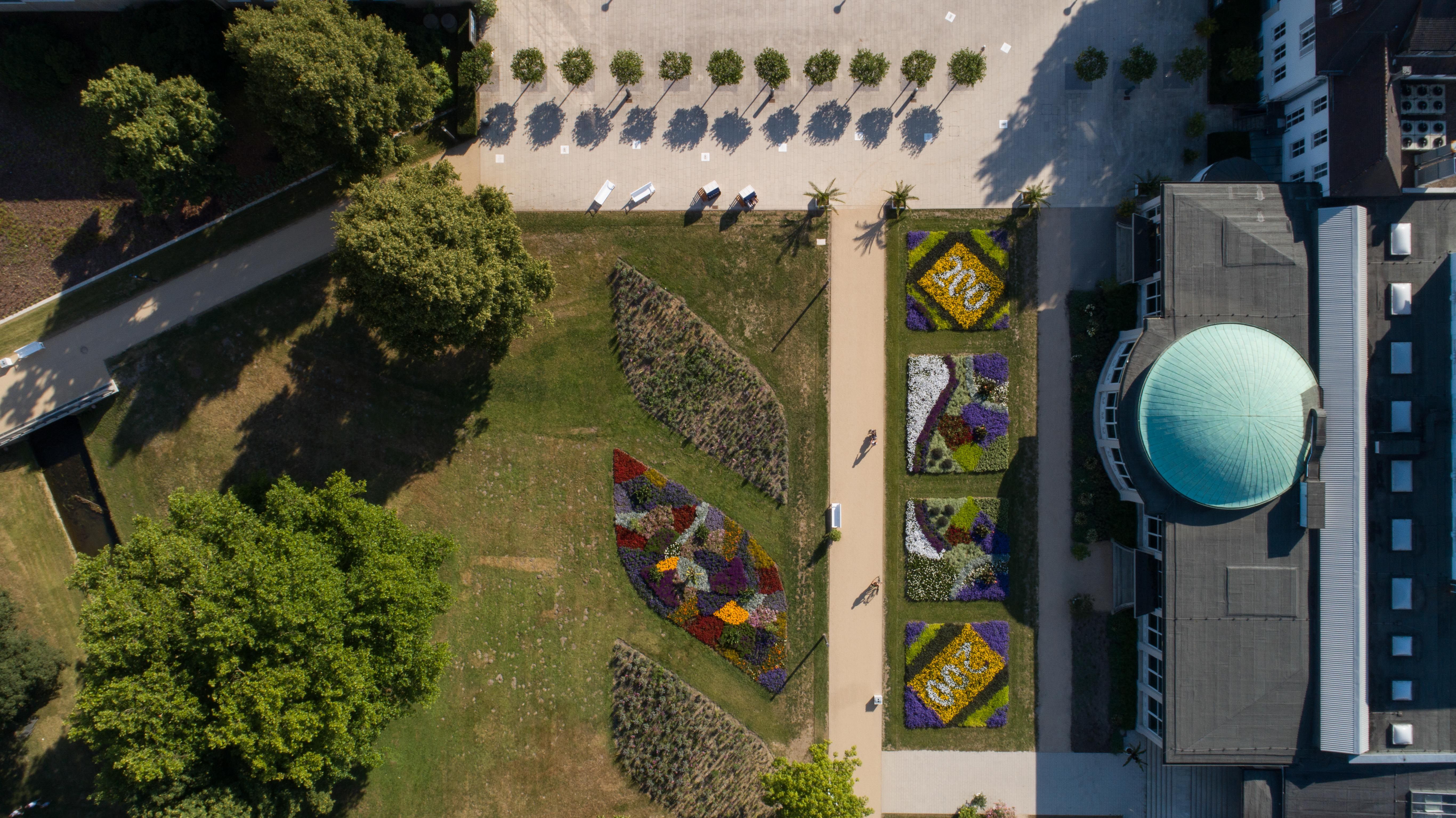
Healthy herbs in spa gardens and co.Healing plants
Kurpark, Bad Salzuflen
Whether as bath additives, ointments, teas or juices - medicinal plants can be used in a variety of ways and are an important part of Kneipp therapy. In the spa gardens of Bad Salzuflen there is a selection of beneficial medicinal plants and culinary herbs that Sebastian Kneipp particularly appreciated. Grouped according to areas of application, such as teas, oils, powders or tinctures, you can see arnica, coneflower, thyme or angelica, among others.
https://www.staatsbad-salzuflen.de
Türnich Castle, Kerpen
Here you can see that historical facilities and current research complement each other well: On the castle island of Türnich Castle, a company specialising in homeopathic medicines maintains a medicinal plant garden, which is open one Saturday a month from March to September. Various experts, including medicinal plant gardeners, alternative practitioners and pharmacists, pass on their knowledge throughout the day. The castle park, organic café, guided tours and events are further reasons to visit.
www.schloss-tuernich.de
Medicinal Plant Garden, Dortmund
This 800 square metre adventure garden, which is part of a medicinal plant school, offers over 200 plants and herbs classified according to their areas of application. In summer, there are monthly medicinal herb tours with different focuses, such as "Edible plant power in spring" or "Summer plants and other wild herbs" in May, June and August. There are other offers for groups, such as the four-hour "Experience medicinal plants" programme, which includes a tour as well as the preparation of a wild herb dish and a flower punch.
https://phytaro.de
